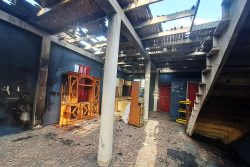ISLAMABAD, (Reuters) – Toppled in a 1999 military coup, jailed and exiled, Pakistan’s Nawaz Sharif has made a triumphant election comeback and looks set to form a stable government capable of implementing reforms needed to rescue the fragile economy.
Sharif may not win enough seats to rule on his own but has built up enough momentum to avoid having to form a coalition with his main rivals, former cricketer Imran Khan’s Tehrik-i-Insaf (PTI) and the Pakistan People’s Party (PPP).
The steel magnate held off a challenge from Khan, who had hoped to break decades of dominance by Sharif’s Pakistan Muslim League (PML-N) and the PPP, led by the Bhutto family.
The two parties have formed governments whenever the military, the most powerful institution in the nuclear-armed nation, has allowed civilian rule.
U.S. President Barack Obama congratulated Pakistanis for the successful election and said the United States would work with the new government as an equal partner.
“By conducting competitive campaigns, freely exercising your democratic rights, and persevering despite intimidation by violent extremists, you have affirmed a commitment to democratic rule that will be critical to achieving peace and prosperity for all Pakistanis for years to come,” Obama said in a statement.
But facing Islamist militant violence, endemic corruption, chronic power cuts and crumbling infrastructure, even Sharif has described Pakistan as a “mess”.
Khan put up a strong fight and he is likely to remain a force in politics, possibly becoming the main opposition figure. The PPP, which led the government for the last five years, has done badly and could come in third place.
Television channels said of the results declared by last evening, Sharif’s PML-N had captured 94 of the 272 contested National Assembly seats..






